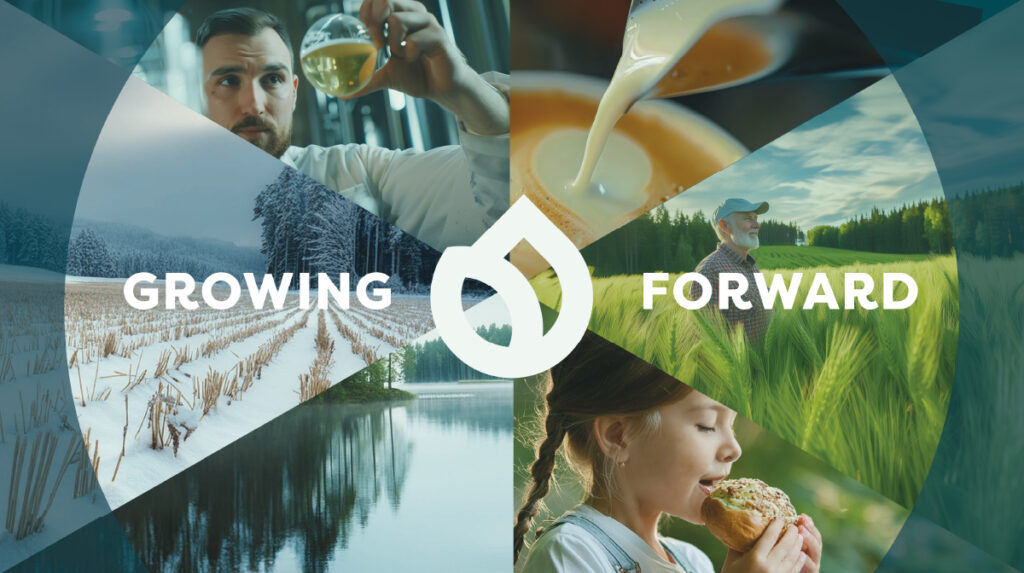At Senson, sustainability isn’t a side project. It’s how the future is built. With the Growing Forward strategy, Senson tackles the most urgent global challenges through concrete actions in climate, circularity, and social responsibility creating real impact where it matters most.
Laying the Foundation: Building a Strategy That Matters
Senson started working on its sustainability strategy in 2023, and officially launched it in 2024. From the very beginning, the aim was not just to follow trends but to create meaningful change.
– We chose our sustainability framework based on three criteria: Is it relevant to us, our local environment, and our customers? Says Pontus Forth, Senson’s Managing Director.
As a part of a family-owned business with over 140 years of history, sustainability at Senson is seen as a long-term commitment to future generations.
With our limited resources, it’s important to focus on where we can make a real impact, says Forth.
This led Senson to align its strategy with the UN Global Compact principles, which now form the foundation of the company’s sustainability program and guide its efforts across climate action, circular economy, and social responsibility.
To ensure meaningful progress, Senson tracks its sustainability goals using internationally recognized frameworks such as EcoVadis and Sedex. Regular evaluations help monitor both environmental and social performance, while internal targets such as CO₂ reduction and supplier compliance are reviewed annually to ensure continuous progress and real impact.
Tackling Climate Change by Reducing Emissions
Climate change has a direct impact on agriculture, reducing yields, deteriorating quality and making harvests increasingly unpredictable. At Senson, these effects are already visible in day-to-day operations.
– Out of Senson’s total CO₂ emissions, we can directly impact 7%,” says Forth.
– That’s why we’ve transitioned away from biomass and gas-based heating and moved entirely to electric systems powered by green and nuclear energy.
Thanks to this shift, Senson has minimized its Scope 1 and 2 emissions. Today, all energy used is emission-free. The company has also set an ambitious target: by 2027, Scope 1 and 2 CO₂ emissions per kilogram of product will be reduced to zero.
Importantly, we’ve made a conscious decision not to rely on carbon offsetting, which we find difficult to monitor and trust. Instead, we focus on reducing emissions at the source, Forth adds.
– It is the responsibility of each company within the value chain to first focus on reducing its own emissions which are the easiest to impact and control. It is painful and expensive, requiring significant investments, but there is no excuse not to do it. In my opinion transferring responsibility to consumers is a cop-out.
– We are also not interested in making promises that will only be fulfilled in 10-15 years.
Beyond energy transformation, Senson is also working to reduce the use of chemicals and continues to lower its overall energy consumption.
– Our product development is guided by a single priority: to create solutions with the smallest possible carbon footprint without sacrificing quality or taste, Forth says.
Driving Circularity – Minimizing Waste and Maximizing Resource Value
With upstream related impacts (scope 3) making up 93% of Senson’s total environmental footprint, reducing waste and optimizing resource use is a top priority. To address this, Senson is committed to minimizing material loss and ensuring that every side stream is fully utilized.
– The less raw material and agricultural land required, the smaller the overall environmental burden, says Forth.
One major step is sourcing raw materials like barley from regenerative farming which is a system that includes crop rotation, optimized phosphorus fertilization using GPS technologies, and the use of cover crops to retain carbon and moisture in the soil.
– These practices demand precision and commitment from farmers but offer significant environmental benefits, Forth tells.
Water use is another key focus. Senson is working to reduce water consumption and improve the management of wastewater and side streams. Today, many of these by-products are already used for animal feed or biogas production.
We’re actively exploring how our side streams could be upcycled even further. We are not alone in this, and there are many interesting start-ups in this field of study already. Could they one day be suitable for human consumption? Says Forth.
In line with its 2027 goals, Senson aims for 10% of sales to come from zero-emission, upcycled, or regenerative products. That’s a concrete step toward making circularity part of the business, not just the process.

Empowering People: Building a Responsible Workplace and Community
At Senson, social responsibility begins with the people both within the company and in the surrounding community.
The company focuses on areas where it can make a tangible impact: promoting safety, supporting personal development, and building long, meaningful careers.
– We believe in creating an environment where people feel safe, valued, and supported in their growth, says Forth. In 2024 we offered all employees the opportunity to pursue a 2 year degree in process technology. Most of the study takes place as self-study during work hours, but each month we close down the production for a day for employees to physically go to school.
Workplace safety is a top priority at Senson, with the clear goal of maintaining zero workplace accidents each year. In addition, Senson is committed to fostering equality.
In true Nordic fashion, we’ve achieved 98% salary parity between men and women.
Beyond its own operations, Senson actively supports the local community. Including partnerships with local events and cultural activities. Whether by providing space, helping with logistics, or contributing to event safety, Senson sees value in creating shared experiences that strengthen community ties.
By 2027, Senson aims to achieve full salary equality between women and men, maintain zero workplace accidents on an annual basis, and ensure that 95 percent of its raw material volume suppliers are covered by a Code of Conduct.
In summary: sustainability is part of who we are
For Senson, sustainability is not a campaign. It’s a way of doing business. It is fully integrated into operations, product development, and company culture.
The work continues, with upcoming initiatives focusing on launching new sustainable products and improving resource efficiency even further.
Senson believes in action over promises not because it’s trendy, but because it’s the right thing to do, Forth summarizes.


